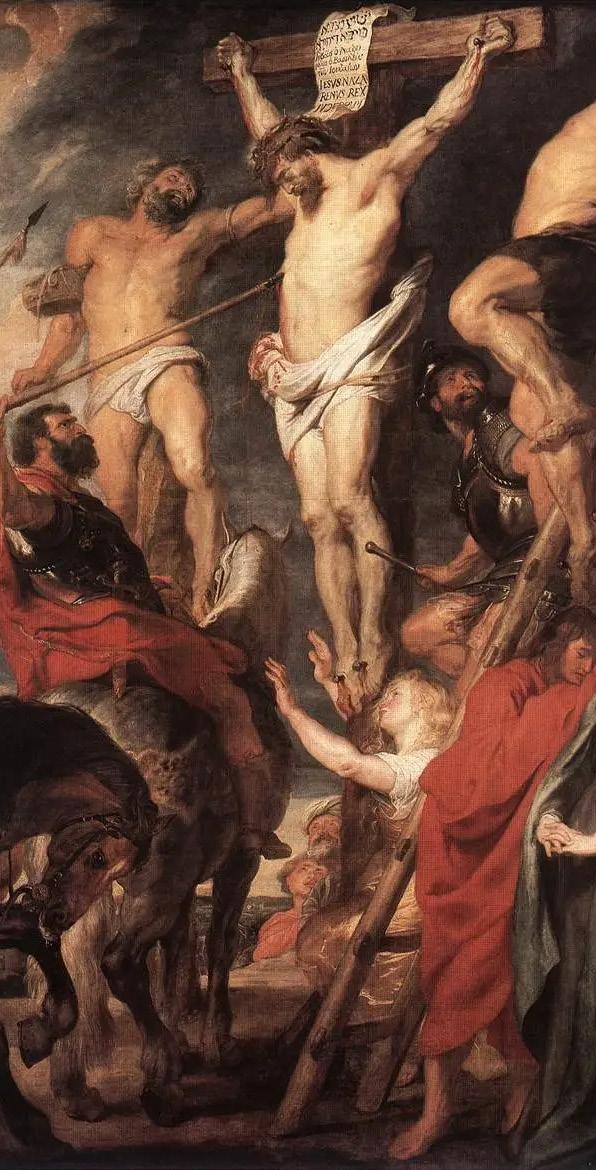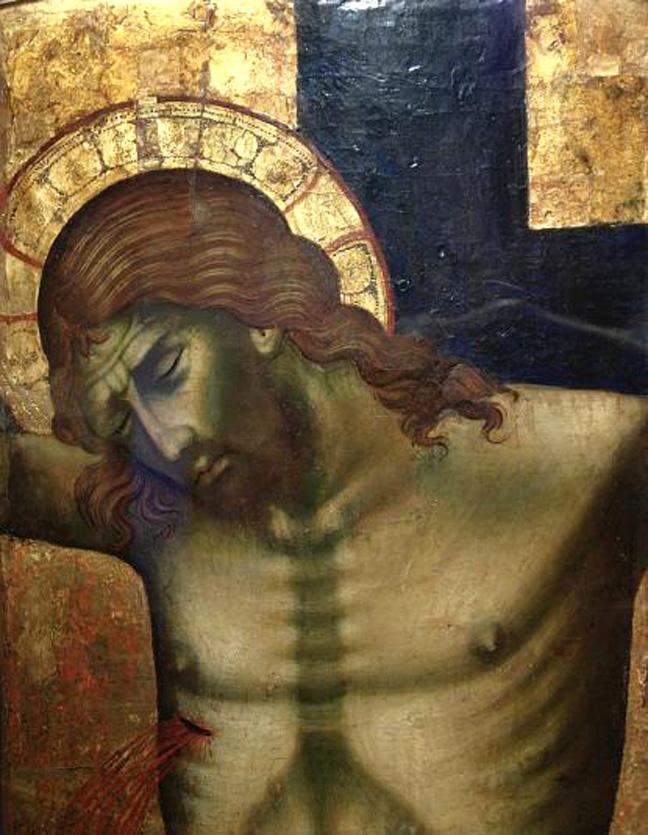
4 minute read
my god, my god, why have you forsaken me?
~ Matthew 27:46
Rev. Leah Quarles
Charlie Brown once said, “Sometimes I lie awake at night, and I ask, ‘Where have I gone wrong?’ Then a voice says to me, ‘This is going to take more than one night.” What keeps you up at night? For children it’s a head cold, the monster under the bed, or a nightmare. For adults, it might be a mysterious illness, worrying about robbers or an argument robs you of sleep. Perhaps a nightmare jolts you awake. Maybe life in the daylight is worse than any nightmare.
The content changes, but the fears remain the same. Underneath it all is the fear of being alone or abandoned. Unlike Charlie Brown, when there is no answer to your cry, do you wonder where God is? continued on page 10
“My God, my God, why have you forsaken me?” God hears this prayer. God answers this prayer. And God says this prayer.
Out of the darkness of a Friday afternoon, this cry went up from the wood of the cross. Why did Jesus cry out? That cry reveals the heart of God. God is not distant. God drank the cup of suffering and death. Where is our God? Wherever there is pain and affliction. But God does more than just feel your pain.
When Jesus cried out in the dark to God, all the sin and suffering of this dark world was no longer between God and humanity. For that one, horrific moment, it filled the Son so that the Creator had to turn away. But there, between God and Jesus, in the very heart of God, the power of sin and death was destroyed forever.
If God let Jesus endure that for you and me, you can trust God will be at your side when you cry in the dark.
i thirst.
Being an On Call Chaplain, I am frequently paged or called to rooms where family members and friends do not want to believe that their loved one is about to die. But if their loved one is still conscious and can speak and listen, this time becomes precious, sometimes life altering for those present in the privacy of the room.
Jesus is deeply aware of who is there with him: his mother Mary, two other women, and John. Jesus is experiencing what any person experiences when they are still conscious while dying: agony in bodily, mental, and spiritual separation from the ones they love.
Jesus’ “cry” is mistaken as bodily thirst. Jesus is offered false comfort by his executioners. His loved ones are helpless and powerless.
That’s why modern medicine offers “comfort or hospice care” for those who are dying. It is also why spiritual/emotional support is so essential for those still living but are experiencing deep grief.

Jesus’ cry, “I thirst” is his spiritual longing to impart a legacy that will satisfy those he loves. Jesus’ legacy was expressed in the Sermon on the Mount, as I interpret it, “Blessed are those who thirst for God’s good character and seek just relationships, for they will be filled/satisfied.”
Legacy is more than an estate plan for our family. Legacy is the most important expression of our character and good relationships that demonstrates our love for God and our neighbor.
For what do you thirst? What do you want your legacy to be?
In my view, the “Seven Last Words of Christ” are the sum of Jesus’ spiritual legacy to those who love him and for any who seeks wisdom for their living.
Rev. Dr. Michael Hegeman
We have all most likely seen images or footage of a person striving to finish a marathon, only to collapse from exhaustion within yards of the finish line. The best stories include someone else, set to race to the end to beat their own time, suddenly changing course, noticing the fallen runner, stopping to help them up, and sacrificing their own time, to help that person to cross the finish line, with crowds cheering this magnanimous display of the best of the human spirit.
When we look at the scene of Jesus on the cross, believe it or not, we see something similar, though at first it might not be clear. Seeing the “marathon” all depends on Jesus’ last words, “It is finished.” We could translate this as, “I have reached the finish line” without too much of a stretch. We see Jesus exhausted beyond exhaustion, depleted beyond depletion, struggling to take his final breaths…to endure to the end. A few hours earlier, someone had helped Jesus walk the desolate road to Golgotha: Simon of Cyrene, who was compelled to carry Jesus’ cross. And now, alone in his agony, except for two thieves alongside him, and the jeering crowds condemning him, Jesus says something that is utterly personal and yet cosmic in scope, “It’s over.” Or did he say, “It has all been fulfilled”? It’s hard to know what Jesus really meant. He didn’t have time to explain. Moments later he “handed over” his spirit, expelling his last breath. And he died.
When Jesus crossed this finish line, it’s nearly impossible to catch any refrain of victory. When he dies, he truly dies. It feels like everything that God was seeking to do in Jesus’ life and ministry had just been obliterated. But we who know the rest of the story, know that this isn’t the end. Those of us who follow this Jesus are called to join the race, and by God’s grace to endure to the end, so we can join the Apostle Paul in saying, “I have fought the good fight; I have finished the race; I have kept the faith.” continued on page 12










